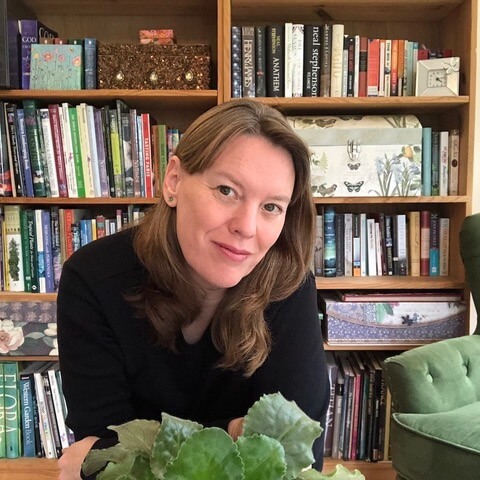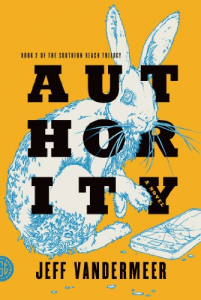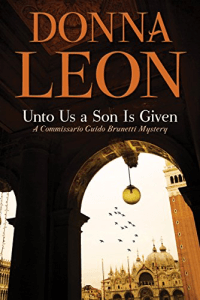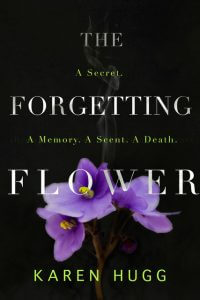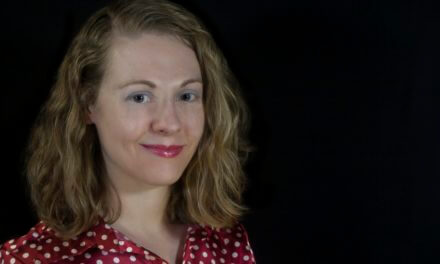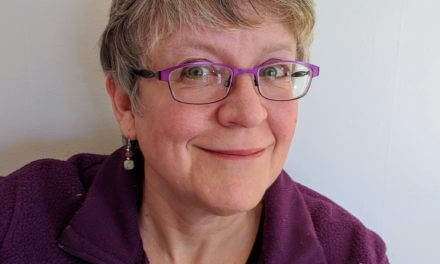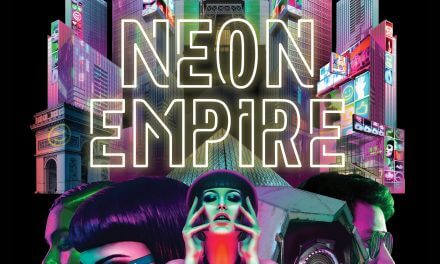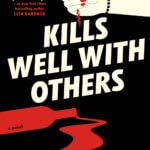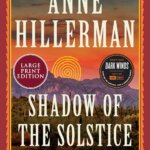Today, Karen Hugg joins me for an interview. I loved her new book, The Forgetting Flower, that seamlessly joins elements of thrillers/mysteries and botany. Karen writes literary mysteries and thrillers inspired by plants. Her stories are set in worlds where plants, real or imagined, affect people in strange new ways. Born and raised in Chicago, she moved to Seattle and worked as an editor before becoming an ornamental horticulturalist and master pruner. She earned her MFA from Goddard College and has been published in Rooted: The Best New Arboreal Nonfiction and other journals and websites. When not writing, she digs in the dirt. When not digging in the dirt, she hangs out with her husband, three children, and four pets. When not doing any of those things, she sits outside and stares at the sky.
SS: What in your childhood do you believe contributed to your becoming a writer?
KH: Well, my dad died when I was four and a half years old, and that tragedy left a deep emotional wound. Needless to say, I was a sad child. And it made me older in years than other kids. I could never be carefree because part of being carefree as a child is knowing all is right with your world, which pretty much is having safe, loving parents. I wasn’t blessed in that way.
So, the way I coped was to escape through books. I read mostly fantasy at the time, stories set in worlds that seemed much more exciting and happy and beautiful than my own. Then eventually, I realized I could create my own worlds. That’s when storytelling through writing began.
SS: When I read other authors’ biographies, mine seems dull by comparison. How do you feel about your life story? Have you ever been tempted to jazz yours up?
KH: Ha, no, never tempted. My life story is a mixed bag of joy and sadness. First, I wasn’t blessed with a father but I was blessed with an amazing husband. I fell madly in love at thirty, but then just a few years later, he got sick with stage 4 cancer. It was a shock. We were so young! And the reason I lost my dad so early was because of cancer. So, you can imagine how the repeat of the experience rocked my world. It was the hardest time in my life. We went through about two years of treatment and miraculously, he recovered. He’s still here (knock on wood), and we’re still together.
Then we adopted three children from Poland and those first few years of child-rearing were the second hardest in my life. They were orphans and my two girls were starved as infants. So, they came a bit traumatized and in intense need of love. My youngest, who’s cognitively delayed, also used to test us like crazy. It was an incredible challenge. But now, they’re all happy teenagers so life is as good as it can be for all of us.
SS: Writing is undoubtedly a lonely occupation. John Green (The Fault in Our Stars) says writing is a profession for introverts who want to tell you a story but don’t want to make eye contact while doing it. Do you see yourself along those lines? Are you a natural loner?
KH: Yes, I’m very solitary. Because of my early loss, I had to learn to be my own best friend. I have a brother and sister, but they’re eight and nine years older than I, so we didn’t hang out much when I was little. And the kids who lived on my block in Chicago were tough bullies, so I learned at an early age to keep to myself. Then as an adult I became an editor, which was great because I worked with words but not so great because I worked for corporations that I wasn’t devoted to. So, I became a professional gardener and worked for myself for years while I wrote stories. And that combination worked out pretty well for me.
SS: Could you say something about your relationship to your fictional characters? How autobiographical do you think your fiction is?
KH: Well, I lived in Paris briefly and am in love with that city so the aspiration to live in France in The Forgetting Flower is very autobiographical. I’m also Polish and come from a pretty ethnic family so some of the Polish characters are loosely inspired by people I’ve known.
Then, of course, there’s always random bits here and there. The fact that the book is about those from working class backgrounds versus those who are wealthy relates to my upbringing and current life. So, I’d say autobiography is sprinkled throughout.
SS: What is your most recent book? In twenty-five words or less, tell me why your book should be a reader should start your book next.
KH: My most recent book is a literary thriller called The Forgetting Flower. It’s about a woman in Paris who hides a dangerous plant from mobsters who want its flowers.
A reader should read it because my aim is to entertain and inspire them, to get them thinking while their hearts are pounding. That’s what I say on my website, and it’s truly my approach to storytelling. Wonder and suspense.
SS: What are you working on at the moment?
KH: I’m about to start editing my next novel, which is a follow up to The Forgetting Flower. It’s called Harvesting the Sky and focuses on a botanist, Andre Damazy, who appears in The Forgetting Flower. This second book is his story. He discovers a medicinal white apple in Kazakhstan and tries to propagate the trees in Paris. But a stranger keeps vandalizing his greenhouse and he can’t figure out why. It’s ultimately a story about redemption and courage.
SS: Regardless of genre, what are the elements that you think make a great novel? Do you consciously ensure all of these are in place?
KH: I think first, great sentences are a must. I want to read words that flow. If they’re poetically placed, even better. Then, I like an interesting story that raises some questions to keep me reading. Then I want great characters who I like, or at least have empathy for, and lastly, I like a solid ending. I’m not claiming to be able to do all that though, but I try my best.
My pet peeve is when novels start out strong and fascinating and then lose their way until the ending is a cop out, ambiguous, completely out of character, or suddenly inserted out of nowhere. So, I make certain that if you’ve journeyed with me for 300 pages, you’re going to get your questions answered and you’ll be satisfied with a compelling conclusion. As you can tell, I’m a “plotter!
SS: What advice would you give aspiring writers?
KH: Be willing to work on your draft over and over. It’s difficult to know when it’s ready to share with the world so that’s why you need a critique group or beta readers or a supportive spouse and ideally all three! Even online groups help. I recently wrote an article about the importance of tribes in a writer’s life. If anyone wants to check it out, here’s the link.
SS: What prompted you to combine horticulture with a thriller?
KH: I’ve been in awe of plants ever since I first had a garden in my 20s. Then, when I went to horticulture school, I realized how amazing they are. They’re incredibly delicate and yet so resilient. As humans we do silly things to them like cut off tree tops or forget to water or plant them in the wrong place, and they often grow anyway. They’re so forgiving of us. And the beauty they offer is of course unmatched. So, I wanted to bring that passion to readers.
I knew that if I could write an exciting story about a plant, people might become more interested in them. And if they noticed plants more often, they might like nature a bit more. And if they did that, well, they might be more mindful of preserving our landscapes and ultimately, our planet.
SS: Is one of the points of crime fiction to suggest that we might all be capable of more than we care to admit?
KH: That’s a great point! Perhaps, yes. My main character, Renia, has to make decisions about what lengths she’ll go to to protect her new life in Paris. She engages in certain behaviors that she’s not proud of. But in her defense, she also has very limited choices. She gets squeezed by various people in her life, which forces her to make the morally gray choices that she makes. And yes, I think crime fiction brings those issues out nicely.
SS: Who are your favorite authors in your genre?
KH: In terms of crime fiction, I adore Tana Fre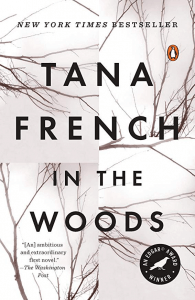
I also have a speculative/fantasy element to my stories so I really love Jeff VanderMeer, who takes science and turns it on its head. His Southern Reach trilogy is brilliant because he created a natural area that goes against the laws of physics but exists in a regular, contemporary world. Plus, he’s really into fungi and spores as a horror device and I think that’s also incredibly imaginative.
In terms of fantasy, I love Neil Gaiman. I mean, who doesn’t, right? But a novel like Neverwhere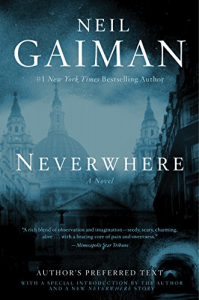
SS: What more do you think can be done to encourage diversity in fiction?
KH: This is definitely something I’m interested in addressing. My trilogy of botanical novels, what I call the Botanique Noire trilogy, are all set in Paris. One of the reasons I’m interested in setting stories in cities is because of diversity. The Forgetting Flower has characters who are European (French and Polish) but also African, Asian, South American, gay, younger, and older. I think that enriches a story. I can’t truly write about what it means to be a person of color, but I can write what it means to be their friend or colleague, which is true to my real life. Bringing that to the page not only broadens readers’ minds but simply reflects modern life.
So, in terms of what can be done, editors and agents can watch for quality stories to publish, teachers can encourage kids of color or on the margins to share their stories and take them seriously, and parents can encourage their children to read books and write their own stories.
LIGHTNING ROUND:
SS: Describe your books in 3 words:
KH: Can I use four? They make up The Forgetting Flower tagline. A secret, a memory, a scent, a death.
SS: Another genre that you would love to write:
KH: Fantasy, but I have to read a lot more books before I start the novel I have in mind!
SS: When writing, are you a night owl or morning person?
KH: There is no morning or night, there’s only when the kids need me and when they don’t.
SS: Your favorite guilty pleasure:
KH: Coke and Fritos
SS: Your favorite detective or spy protagonist is:
KH: Commissario Guido Brunetti of Donna Leon’s mystery book series. He’s cool headed, he has an adorable family, and he lives in Venice!
SS: I love Leon’s books as well. I lived in Milan for several years and loved to pop over to Venice for the day. What is your favorite thriller or mystery movie?
KH: I have a few. Steven Spielberg made a movie called Munich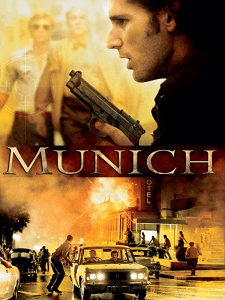
Also, the movie Zodiac is masterful. It’s about how a cartoonist in San Francisco helped decipher taunting coded messages and identify a serial killer. The whole film is a wonderful dark puzzle and Jake Gyllenhaal is amazing.
Lastly, I have to give a shout out to All the President’s Men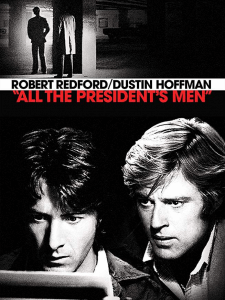
********************
“A lush mystery with the underpinnings of a fairy tale shot through with magic and tragedy. Karen Hugg is the rare author who can blend wonder and suspense.” –Emily Carpenter, Author of Until the Day I Die, Every Single Secret, and Burying the Honeysuckle Girls.
“The delight and grit of Paris, the desperation of poverty, the love of plants and family — all beautifully and authentically told. The literary side of the novel brings sensitivity and texture to the struggling characters and their surroundings, and the thriller side kept me up late, anxious to find out what happens next.” –Sue Burke, Author of Semiosis (Semiosis Duology)
“Intriguing and atmospheric, The Forgetting Flower has a fairytale quality, a journey into the sensuous magic of plants. The florescent beauty at the heart of this eerie story of sisterly love and redemption is the extraordinary mountain hybrid Violet Smoke with its scent of burnt apricot, as dangerously potent in Paris as it was in its beginnings in Poland.” –Deborah Lawrenson, Author of The Lantern, 300 Days of Sun and The Sea Garden.
“Karen Hugg’s The Forgetting Flower instantly captures a reader’s imagination. A book for those who love not only Paris and flowers, but also intrigue and danger.” — Marty Wingate, Author of A Potting Shed Mystery Series
Secrets and half-truths. These litter Renia Baranczka’s past, but the city of Paris has offered an escape and the refuge of a dream job. The specialty plant shop buzzes with activity and has brought her to a new friend, Alain. His presence buffers the guilt that keeps her up at night, dwelling on the endless replays of what happened to her sister.
All too suddenly, the City of Light seems more sinister when Alain turns up dead. His demise threatens every secret Renia holds dear, including the rare plant hidden in the shop’s tiny nook. It emits a special fragrance that can erase a person’s memory—and perhaps much more than that.
As Renia races to figure out the extent of the plant’s powers, she’s confronted by figures from her past who offer a proposal she can’t outright refuse. Bit by bit, she descends into a menacing underworld of blackmarket mobsters, navigating threats and fending off abuse to protect the safe peaceful life she’s worked so hard for. Desperate to outwit her enemies, Renia maneuvers carefully, knowing one wrong move will destroy not only the plant, but the lives of her sister and herself.
The Forgetting Flower is available through:
********************
An excerpt from Chapter 1 of The Forgetting Flower:
As she came out of the Saint-Germain-des-Prés station, she vowed to leave her longing behind and enjoy the summer day: the ornate buildings, cobbled sidewalks, welcoming shade of a tree. At the café, a young couple read a shared book as they ate lunch. Three businessmen climbed into a taxi, laughing about a missed flight. A grocer helped an elderly woman untangle her dog from a post. The scenes lightened her spirit though she couldn’t fully relax, couldn’t fully exhale, not yet. But at least she lived in Paris.
She was about to cross the street and go in her plant shop when she noticed a dark spill on a building wall. Paint had rolled down the limestone in streaks, tarnishing the façade. Such a strange color. Not bright like the Polish flag or carmine like military coats, but scarlet like the Kordia cherries she ate as a girl in Kraków. She paused, shifted her crate, and touched the liquid, rolling it between her fingers. It was thin with a weak metallic scent. Looking up, she saw it had spilled from a deuxième étage apartment. The balcony door was open and a Rachmaninoff concerto stormed in the air. Through an iron railing, orange petunias jittered in the wind.
That was Alain’s apartment.
Odd. He never opened his balcony door.
She called his name, set a hand on her forehead to block the sun, waiting for him to come outside and apologize for knocking over a can of paint. Laugh off some clumsy thing he’d done. But he didn’t. Instead, the trumpets blared, the piano banged. The violins swooned over rolling tympani. It was as if the music answered in a language she couldn’t understand.
“Alain! It’s Renia!”
No response.
A rising panic swelled inside. Last month he’d had that relapse. And he’d switched medications. He’d wanted a natural cure. He’d tried St. John’s Wort and saffron and who-knew-what, but Renia knew there was no magic cure. Sometimes one simply had to change their attitude. She had, more or less. He’d wanted what was hidden in the atrium and she’d helped him with it before. But she wasn’t a doctor, and his condition was too serious for amateurs and—oh lord, was it still there?
“Alain!”
Come to the door. Please.
The blue sky sat like a giant shroud. The concerto roared, the No. 2, his favorite. The liquid streaks, so scarlet red. He couldn’t have done it, he couldn’t . . . but he might have. With her hand, she shielded the sun from her eyes and strained to see through the balcony railing. There seemed to be a hand with fingers, an arm stretched out on the cement floor. Difficult to . . . was that an arm? Yes, it was an arm….
********************
Karen can be found here on social media:
